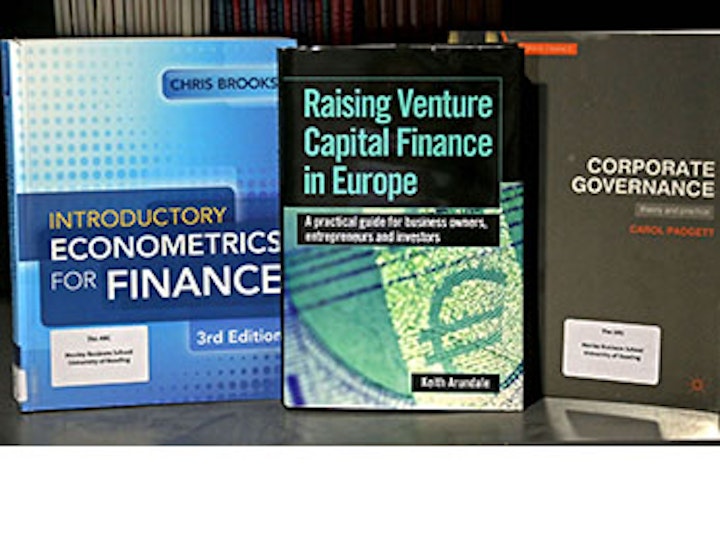World Book Day: Sharing academic stories
Book: Raising Venture Capital Finance in Europe

 Book: Raising Venture Capital Finance in Europe
Book: Raising Venture Capital Finance in Europe
The opportunity to write the book arose because I had previously written the “Guide to Private Equity” for the British Private Equity and Venture Capital Association (BVCA). After two to three months of procrastination I realised that I would need to spend two to three days a week writing if I was to meet the deadline! So I got on with it, and when I was about 1/3 of the way through I could see the light at the end of the tunnel and the writing flowed!
It was fun conducting the interviews with VC investment executives, entrepreneurs and advisors which formed the material for the 18 case studies. These help to bring out the particular feature of the book in that it looks at the topic from both sides - showing what the venture capitalist is looking for as well as detailing how an entrepreneur or business owner can make proposals attractive to investors. The book received 5 star reviews on Amazon and helped to credential my specialist knowledge of VC for my subsequent appointment at the ICMA Centre.
I seem to read mainly John Grisham books for relaxation, though as his books are mainly about lawyers and I run quite a number of courses for lawyers I should probably choose another profession to follow - just for some variety!
Find out more about Dr Keith Arundale's research here.  Book: Macroeconomic survey expectations
Book: Macroeconomic survey expectations
As the newly-appointed editor of Palgrave Texts in Econometrics, I had been busy badgering friends and colleagues to contribute to the series. I realised there was one sure-fire method to grow the series. Writing an academic monograph is time consuming, and at least in my area, attracts less kudos than a top journal publication. However, there is much enjoyment and satisfaction to be had from marshalling the material into a coherent whole, and developing a deeper understanding in the process.
Up until a fortnight ago I would have declared “Eleanor Oliphant is Completely Fine”, by Gail Honeyman, my most enjoyable read of the last year or so. But I’m now reading Barbara Kingsolver’s latest, “Unsheltered”, which is also quite wonderful, in a completely different way.
Find out more about Professor Michael Clements's research here.  Book: Corporate Governance: Theory and Practice
Book: Corporate Governance: Theory and Practice
I found the writing process tough. I had not written anything as long as this since my PhD thesis more than 20 years before, and had not realised how much extra work there would be in finding materials for the companion website. That said, I enjoyed researching the cases and examples used in the book, and only years later realised how much I had talked about them, when one of my daughters expressed surprise that some of her friends had no idea about what boards of directors do! I have to say there is something very special about seeing the finished product on a bookshelf.
I am a big fan of crime fiction and have a particular fondness for Chief Inspector Gamache, created by Louise Penny. The advice he gives to his detectives is useful for all of us.
Find out more about Dr Carol Padgett's research here.
| Published | 6 March 2019 |
|---|


